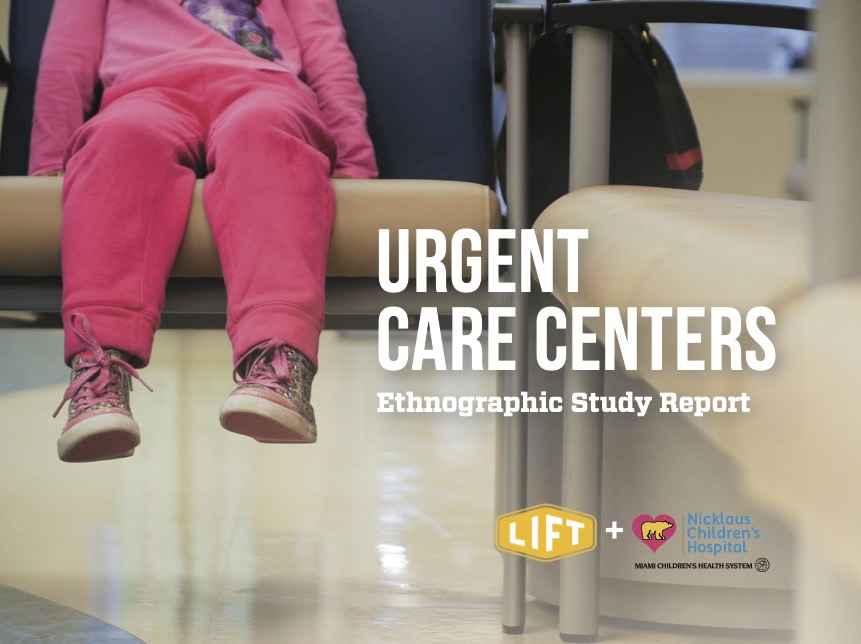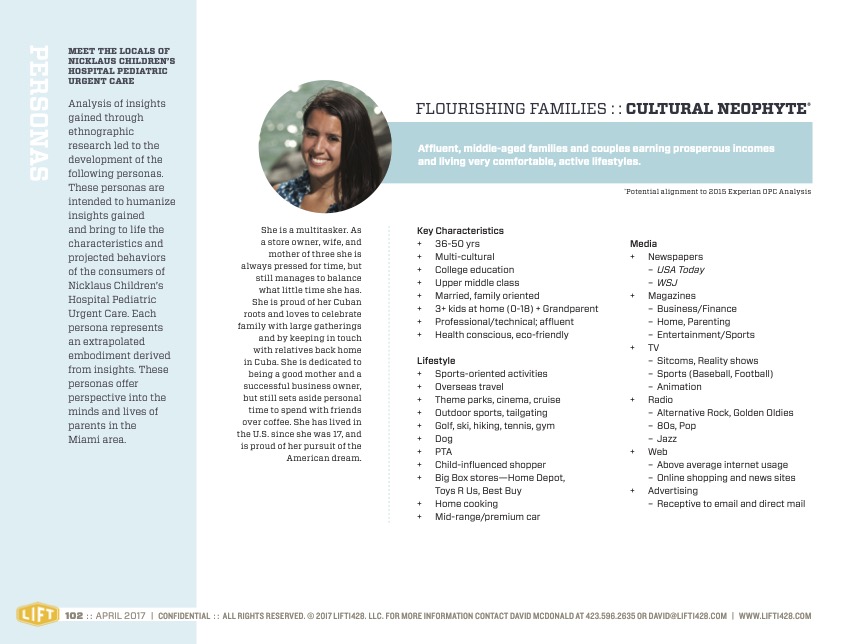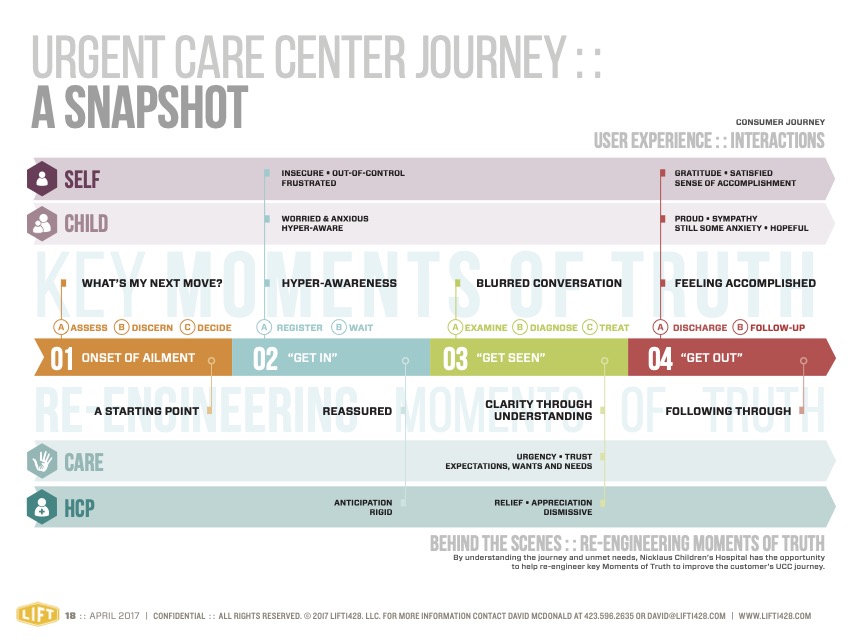The study identified and helped the care team understand four distinct segments of the patient journey and the dominant emotions experienced by parents at each of these stages. These included negative feelings like self-doubt, anxiety, and fear, as well as positive emotions like relief, accomplishment, and self-satisfaction that parents expected to feel after a successful experience.
Several opportunities with the care site and workflow were identified as opportunities to address potential negative aspects of an experience, including the experience of waiting, the sensory and information overload that can occur when under stress, and anxiety surrounding the unknown related to a diagnosis.
In all cases, a heightened sensitivity to the emotional stressors of the care experience of the children and their parents provided valuable insights for the team. The study provided specific language used by patients and parents in this community to describe the experience, their emotions, and their hopes which could be used when redesigning training, scripting, processes, and patient support materials and processes.





